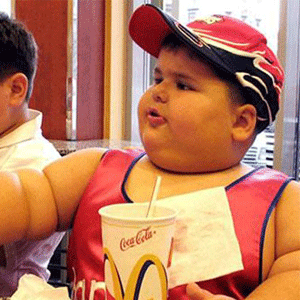
A new study helps identify which parents of teens are most likely to use feeding practices that have been linked with unhealthy outcomes, researchers say.
Overweight and eating disorders
Parents most often put pressure on their teen to eat when neither they nor the teen are overweight, while when parents and teens are both overweight, parents most often use food restriction, the researchers found.
Previous research has shown that when parents use restriction and pressure-to-eat feeding practices, children and adolescents are at higher risk for being overweight and having eating disorders, said lead author Jerica M. Berge of the University of Minnesota Medical School in Minneapolis, in an email to Reuters Health.
Read: Eating Disorders: not for women only
She and her colleagues analysed data from two studies involving more than 3,000 parents and more than 2,000 teens. Teens had their height and weight measured by trained professionals at school, and parents filled out a questionnaire at home, self reporting their own heights and weights.
Parents also reported how often they encouraged their child to eat more at mealtimes and how often they restricted sweets, high-fat foods or their teen's favorite foods.
Read: 10 foods with hidden sugar
In about 1,200 cases, parents were overweight or obese but their teen was not. In almost 900 cases, both parent and child were overweight. In almost 700 cases, the parent and child were both not overweight, and in only about 300 cases the parent was not overweight but the teen was.
Pressuring kids to eat was more common when both parties were not overweight, compared to pairs who were overweight or had differing statuses.
Unintended consequences
Similarly, food restriction was most common for pairs that were both overweight or obese, compared to those who were both not overweight or who differed between parent and child, the authors reported in Paediatrics.
Clare Collins, professor in nutrition and dietetics at The University of Newcastle in Callaghan, Australia who wasn't involved in the new study, noted in email to Reuters Health that the surveys were taken only at one time point so it is unclear from the results if parent feeding practices go on to influence future eating and weight status in the adolescents.
"The problem with restricting food from a child or pressuring a child to eat more is that prior research has shown that it may have unintended consequences such as, a child becoming overweight or obese, or engaging in disordered eating behaviors such as, binging or purging," Berge said.
Read: Strict school lunches tied to healthy weight
"Rather than restricting or pressuring your child to eat, it is more helpful for parents to make sure that there are a variety of healthy food options in the home, or on the table, for children to eat and then allow the child to decide how much they eat," she said.
Having unhealthy food in the fridge and on the table and telling a teen they cannot eat it is not helpful and sets up food fights, Collins said.
But keeping unhealthy food out of the house in the first place does work and helps keep harmony in your house, she said.
Read more:
Healthier meals cost families more
Food and your children's teeth
Tips for healthy school lunches kids will actually eat




 Publications
Publications
 Partners
Partners










